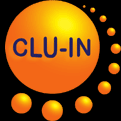Search Result
| Return to Search | Return to Results |
DEVELOPMENT OF IN SITU REMEDIATION OF CONTAMINATED SEDIMENTS WITH ACTIVATED CARBON AND TRANSITION TO PRACTICEAmerican Academy of Environmental Engineers and Scientists, 2015 Honor Award: University Research, 2015
The development of an in situ sediment remediation technology using activated carbon (AC) as an amendment to contaminated sediment is an innovation from the laboratory of Dr. Upal Ghosh of the University of Maryland, Baltimore, in collaboration with Dr. Charles A. Menzie. The novel patented (U.S. Patent 7,824,129) delivery technology has been commercialized as SediMite™. AC is a highly porous material with a low bulk density, and its application to sediment through the water column is challenged by the potential of the carbon to be entrained and washed away. This challenge was met by blending AC with sand and clay to make the engineered Sedimite pellets, which have sufficient strength and density to be handled in bulk and deployed through water, where they disintegrate over a period of days and are incorporated in sediments by natural mixing processes. As part of the technology transition effort, the first full-scale application of the SediMite technology was implemented in a 5-acre lake in Dover, Delaware, in November 2013, where the successful use of this novel technology reduced PCB concentrations in sediment porewater, the water column, and fish. http://www.aaees.org/e3competition-winners-2015honor-universityresearch.php
The Technology Innovation News Survey welcomes your comments and
suggestions, as well as information about errors for correction. Please
contact Michael Adam of the U.S. EPA Office of Superfund Remediation
and Technology Innovation at adam.michael@epa.gov or (703) 603-9915
with any comments, suggestions, or corrections.
Mention of non-EPA documents, presentations, or papers does not constitute a U.S. EPA endorsement of their contents, only an acknowledgment that they exist and may be relevant to the Technology Innovation News Survey audience.





